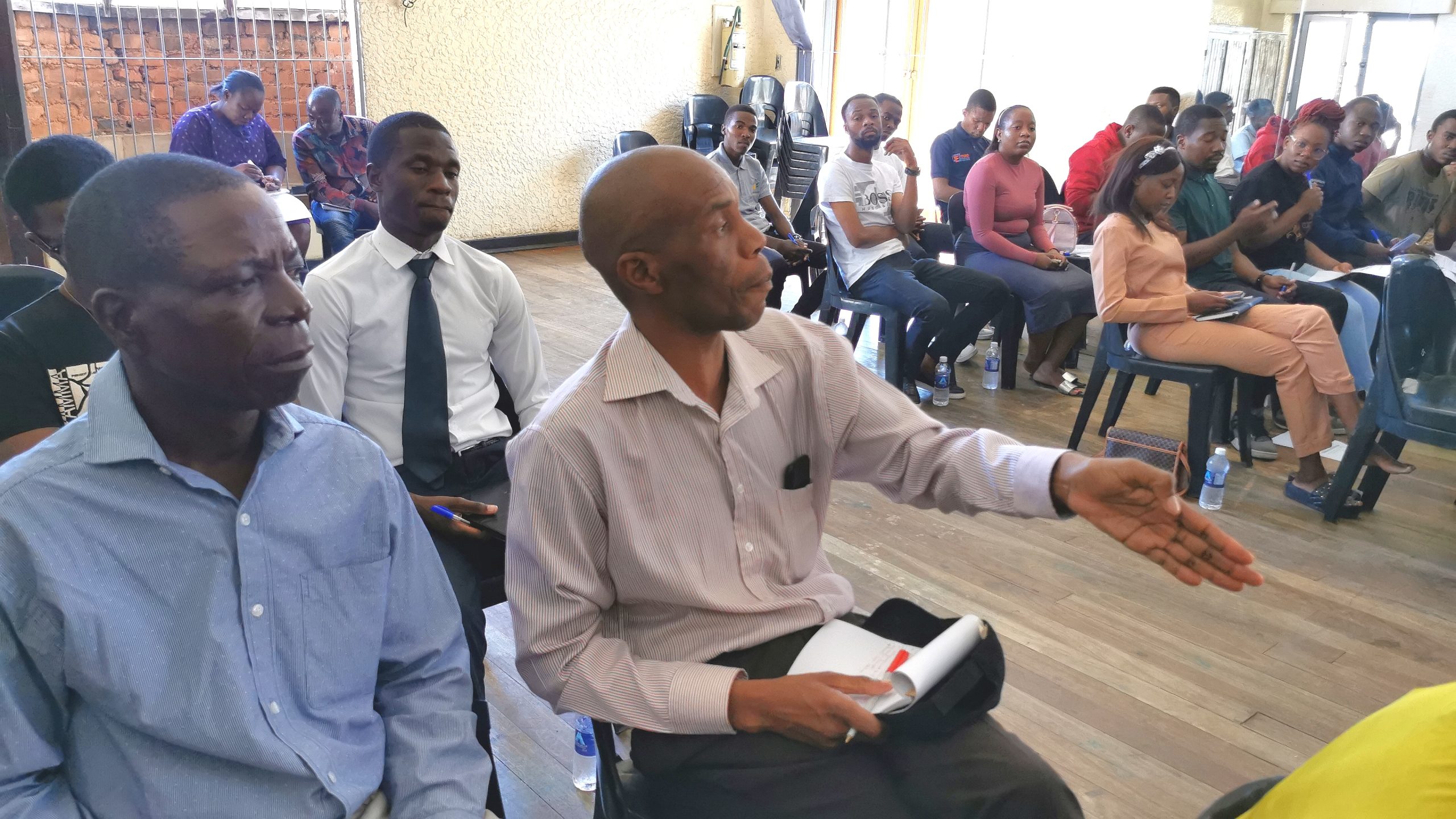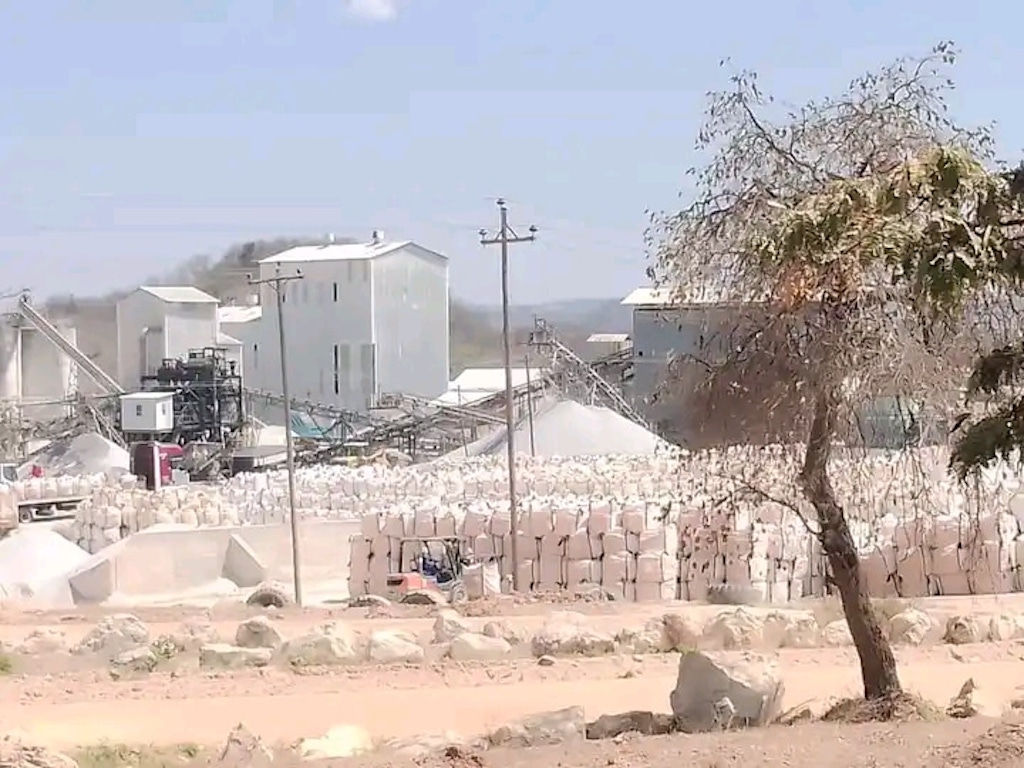Sofia Mapuranga
MUTARE—Community-based organisations (CBOs) in Manicaland have set up a committee to implement an action plan aimed at holding foreign and local companies to account while addressing the environmental, social and economic challenges caused by mining activities in the province.
The resolution was made at a recent community dialogue (pictured) that brought together close to 50 CBO representatives drawn from the province, among them Manica Youth Assembly (MAYA), Zimbabwe Diamond and Allied Workers Union (ZIDAWU), Zivai Community Empowerment Trust (ZICET), Young Entrepreneurs Trust (YETZ) and Mutasa Youth Forum Trust.
The dialogue was convened by Information for Development Trust (IDT) under the title, “Impact of Foreign and Local Gold Mining Activities on the Environment and Local Socio-economic Rights”.
Committee members were chosen from these community-based non-state organisations that converged in Mutare to discuss various issues that included the impact of riverbed mining on the local environment, civil society efforts in countering adverse resource extraction and the sustainability of gold mining in areas like Penhalonga.
The meeting comes in the wake of prevalent and harmful environmental practices by foreign and local companies.
Zimbabwe Goldfields, a joint venture between the Zimbabwean government and Belarusian investors, has been engaged in riverbed mining in Penhalonga, resulting in extreme siltation and pollution of the Mutare and Odzi rivers.
The venture, which has also subcontracted Chinese miners, has diverted Mutare River, with the massive pollution due to the discharge of chemicals into the nearby water bodies causing a shortage of potable water in the area.
Also in Penhalonga, artisanal gold mining involving Betterbrands, a company owned by Pedzisai Scott Sakupwanya, a ruling Zanu PF lawmaker and reported protégé of President Emmerson Mnangagwa, has caused river poisoning through cyanidation, in addition to massive damage to the physical environment.
The CBOs tasked the committee members with engaging the foreign and local investors mining in the affected areas so as to come up with win-win strategies.
In addition, the committee will engage the Mines parliamentary portfolio committee as well as other stakeholders that include the Environmental Management Agency (EMA).
The committee is supposed to highlight the concerns coming from the communities and discuss possible solutions with the respective stakeholders.
Said Fungai Nhaitai, the YETZ leader: “We are going to petition government to action previous petitions which they have ignored as a starting point of the action plan. There are community organisations from Penhalonga that have submitted petitions to government but nothing was done.”
The communities resolved to work on an information dissemination framework to be used to mobilise affected communities so they have a united front in their fight for environmental and socio-economic justice.
“We are going to use the existing legislation and leverage on its powers to demand our socio- economic rights. Communities have a right to manage their own affairs and they should get their share from mining proceeds.
“Devolution gives communities the powers to manage their own resources but it is not being applied in the mining sector. Communities should be empowered so that they are able to demand their rights and accountability,” said Prince Mupindu, a Zimbabwe Coalition on Debt and Development (ZIMCODD) youth volunteer.
The communities resolved to mobilise and participate in the crafting of a new Mines and Minerals law meant to improve on the current legislation that has been criticised for being “antiquated and out of touch with new national and international law developments”.
The proposed new law—which has been on the cards since 2012—seeks to, among other things, ensure tighter environmental protection, effective settlement of farmer-miner disputes, greater accountability in mine ownership and more robust corporate social responsibility.
“There is need to identify a common ground so that as communities we also benefit from the precious resources being extracted in our area,” said Precious Gamunorwa, a legal expert from ZIDAWU who was one of the panelist.
Catherine Sithole from ZICET lamented the challenges being experienced by women and girls, saying there was increased gender-based violence, school dropouts, child labour and abuse and early teen pregnancies because of mining activities in Penhalonga.
Cosmas Sunguro from ZIDAWU Trust told the meeting that youths and women were not benefitting from the economic proceeds from the minerals extracted in their communities.
Mildred Muzanechita from ZICET said women and youths were the most affected by unsustainable mining practices, adding that it was important for communities to mobilise and come up with effective frameworks designed to ensure they benefit from the extractive sector.
“Currently, communities are left to bear the costs of mining where they are losing livestock and even human life from the environmental degradation left by the foreign investors. The Belarusians came and mined and left. Now they are back but, as communities, no-one has asked them where they are getting the mandate to do as they please on our environment,” she said.
She demanded that communities be given access to information regarding contractual agreements between the foreign mining companies and government, saying the steering committee must prioritise contractual transparency.
This article was also published by NewsHubZim








